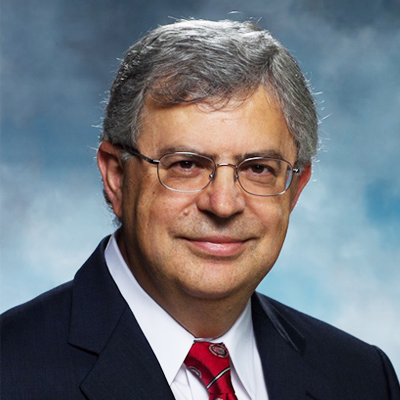Understanding mechanisms of multiple sclerosis to develop novel therapeutic approaches and identify biomarkers of treatment responses
According to recent statistics, more than 400,000 people in the United States are diagnosed with multiple sclerosis (MS), and about 200 new cases are diagnosed each week. Currently, MS therapies are very expensive, as choosing therapy for a particular patient is a trial and error process. Dr. Suhayl Dhib-Jalbut, Professor and Chairman of Neurology at Rutgers Biomedical and Health Sciences, is studying underlying mechanisms of neurodegeneration in MS, testing novel neuroprotective approaches, and identifying biomarkers of treatment response. A predictive biomarker of treatment response can help choose the correct medication that patients are most likely to respond to, and save patients and payors significant resources.
MS is an inflammatory demyelinating and degenerative disease of the central nervous system (CNS), whose response to immune-based therapies declines as the disease progresses. In order to develop effective treatments, it is critical to elucidate the underlying mechanisms of neurodegeneration in MS and identify biomarkers that will help determine the effectiveness of medication early into treatment and illuminate the best therapeutics for each patient. Several MS centers, including centers at University of Maryland, Baltimore and Carolinas HealthCare System in North Carolina, have collaborated with Dr. Dhib-Jalbut in the biomarker study, to identify candidate biomarkers for a few drugs in the market. Currently, Dr. Dhib-Jalbut hopes to validate these biomarkers in animal models as well as human peripheral mononuclear blood cells, and investigate novel ways to deliver therapeutics.
Dr. Dhib-Jalbut’s research is focused on two aspects of MS:
- Preclinical Studies of Disease Mechanisms and Potential Therapeutics in Animal Models: Dr. Dhib-Jalbut’s preclinical studies include the use of bone marrow stem cells (BMSC). Because BMSC have the capacity to travel past the blood-brain barrier, into the brain, loading them with therapeutic molecules like Interferon-beta, one of the FDA-approved drugs for MS, will help deliver the drugs into the nervous system in the brain and suppress the inflammation. Using animal models, Dr. Dhib-Jalbut is developing ways to utilize BMSC as a vehicle of drug transportation.
- Discovery of Biomarkers: Interferon-beta, an FDA-approved drug that modulates the immune system in a beneficial way in MS, works only in about 40% of the patients. Likewise, only 35~40% of patients respond to Glatiramer acetate (GA), which is another FDA-approved drug for MS. By utilizing a genetic marker called HLA, Dr. Dhib-Jalbut and his team hope to identify those 40% who have high response to GA, and create solutions to determine the best drug for a particular patient.

Bio
Dr. Suhayl Dhib-Jalbut is Professor and Chairman of the Departments of Neurology at Rutgers -- Robert Wood Johnson Medical School and New Jersey Medical School. He is also Director of the RWJ Center for Multiple Sclerosis (MS). He currently serves as President of the Americas Committee for Treatment and Research in MS (ACTRIMS).
Dr. Dhib-Jalbut graduated Alpha-Omega-Alpha from the American University of Beirut in Lebanon and completed his Neurology training at the University of Cincinnati. He then joined the National Institutes of Health (NIH) in Bethesda, Maryland where he specialized in MS and Neuroimmunology. Dr. Dhib-Jalbut was an NIH funded physician-scientist at the University of Maryland School of Medicine before his recruitment to Chair the Department of Neurology at Robert Wood Johnson Medical School in 2003. Under his leadership, the Department of Neurology at RWJMS grew from nine to 23 full time faculty members with a robust translational research program focused on MS and Parkinson’s disease.
Dr. Dhib-Jalbut’s interest in research started when he was a third year medical student. The brain was particularly interesting to him, and he had the opportunity as a medical student to work on a rare infection of the brain caused by the measles virus which eventually led him to specialize in Neuroimmunology and Multiple Sclerosis.
Outside of his research, he enjoys traveling and doing volunteer work within his profession.
For more information, visit http://rwjms.rutgers.edu/departments_institutes/neurology/research/disease.html
In the News
Multiple Sclerosis Discovery Forum
The Boston Globe
Publications
Videos
Awards
National Institutes of Health Mid-career Investigator Award
President, Americas Committee for Treatment and Research in MS (ACTRIMS)
Norman Edelman Clinical Science Mentoring Award
University of Medicine and Dentistry of New Jersey - Robert Wood Johnson Medical School


